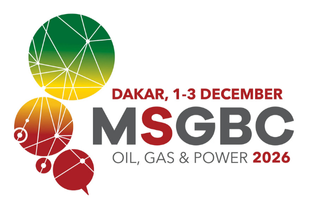Regulatory Developments in the MSGBC’s Energy Sector: What to Expect
)
Both bills reflect the growing role of the extractive and energy industries in the MSGBC region’s economy, with the goal of stimulating economic development and ensuring energy security. Africa’s energy needs could double by 2050, as its population continues to grow and its economy to industrialize. In the ECOWAS region, nearly 180 million people – or about 60% of the population – face electricity access issues. In this context, the establishment of an enabling regulatory framework that boosts regional competitiveness and attracts investment will be crucial to developing upcoming discoveries – including Mauritania’s BirAllah field and Senegal’s Yakaar-Teranga gas project – that have the potential to secure future energy supplies.
Existing Hydrocarbons Legislation
In the MSGBC region, Mauritania and Senegal are the only two countries to have established comprehensive and holistic hydrocarbon regulatory frameworks. Senegal’s 2019 Hydrocarbons Code – which aims to attract foreign investment, while ensuring greater state participation and benefits from the oil and gas sector – has given rise to multi-billion-dollar investments, including the $5.2-billion Sangomar oil development and $4.6-billion Greater Tortue Ahmeyim LNG project. The code introduces a more transparent system for royalties and surface fees, as well as adjusts state participation based on revenue and investment ratios. Areas for improvement include increasing flexibility in fiscal terms to better adapt to fluctuating oil prices, and strengthening mechanisms to mitigate financial volatility, which could further attract and sustain foreign investment.
Meanwhile, Mauritania’s oil exploration and production sector is primarily governed by the 2010 Hydrocarbons Code, with significant amendments in 2021 that introduced special incentives for remote and technologically challenging “promotional zones” to attract new operators and expedite resource development amid the global energy transition. Activities require entering into a Production Sharing Contract with the country’s Ministry of Petroleum, Energy, and Mines, with foreign contractors mandated to establish local entities. This legal framework has successfully attracted international oil companies – including bp, Kosmos Energy, Woodside Energy and TotalEnergies – by establishing a clear and structured environment for operations. That said, Mauritania’s local content framework could be enhanced by introducing quotas for Mauritanian employees on each project as well as requiring majority local ownership, as seen in oil-producing Gulf countries like Qatar and the UAE.
Looking Ahead
As the MSGBC region emerges as a global energy frontier, ongoing improvements in regulatory frameworks, particularly when it comes to local content and environmental responsibility, can be expected. Emerging producers like Senegal and Mauritania can mirror best practices found in Africa’s more mature hydrocarbon markets. For instance, Nigeria’s 2021 Petroleum Industry Act encourages indigenous participation by facilitating access to marginal fields for local businesses and converting dormant fields into Petroleum Mining Leases, with a focus on local operators. Similarly, Ghana’s competitive bidding process for licenses ensures that local firms gain more opportunities and retain greater economic benefits.
In terms of environmental management, Senegal and Mauritania could draw inspiration from the Republic of Congo’s gas monetization policy. The Congo is spearheading efforts to utilize all associated gas, effectively eliminating flaring and developing infrastructure for local gas processing and power generation. Moreover, the country actively participates in the carbon credits market through forest conservation and environmental restoration initiatives. Mauritania, with its substantial solar and wind energy potential, could implement a similar approach, using its gas as a transitional energy source for heavy industries, while progressively developing its own green projects.
Explore opportunities, foster partnerships and stay at the forefront of the MSGBC region’s oil, gas and power sector. Visit www.msgbcoilgasandpower.com to secure your participation at the MSGBC Oil, Gas & Power 2024 conference. To sponsor or participate as a delegate, please contact sales@energycapitalpower.com.

